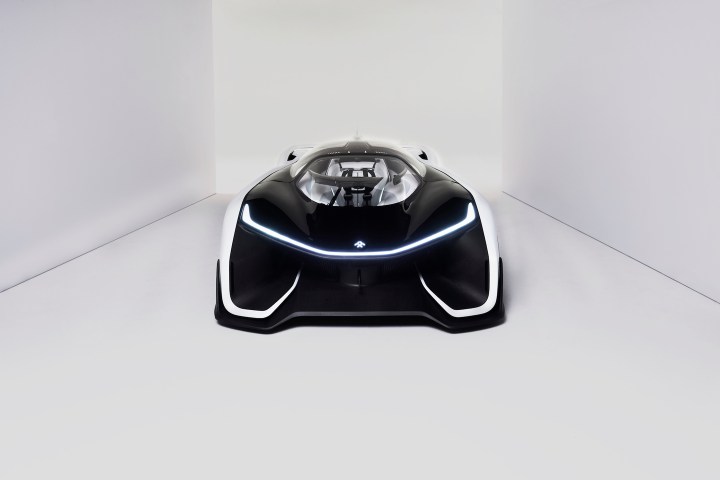
Faraday still plans to unveil its production car at CES 2017 in January, though, and hasn’t discussed any plans to push back the start of production. At CES 2016, the company said it would start production of its electric car. But one former Faraday employee told the Financial Times (subscription required) that meeting the target launch date is “not possible.”
“If CES goes badly, it’s all over,” the anonymous former employee said. “It will be a long time before there is a production car.” Faraday’s production timeline has always been fairly aggressive. The company has never built a car before, and doesn’t even have a factory, so it has quite a bit of work to do. Factory construction and pre-production prep work alone could consume a lot of time, and it’s unclear whether development work on the Faraday electric car has been completed.
Work at the factory site is at a standstill. Earlier this month, lead contractor AECOM said that “grading and foundation prep work” had been completed, but that Faraday Future is “temporarily adjusting their construction schedule with plans to resume in early 2017.” In October, AECOM sent a letter to Faraday warning that the automaker was late on a $21 million deposit for an escrow account to cover material costs and subcontractor work.
At the same time, LeEco and its billionaire founder, Jia Yueting, are experiencing financial trouble. In a recent letter to employees, Jia said LeEco has overextended itself and was running out of cash. He cited the company’s automotive projects, as well as the recent effort to launch its television and smartphone lines in the U.S. In addition to Faraday Future, LeEco has a partnership with Aston Martin, and has considered building cars under its own brand name.
Faraday still plans to unveil its electric car at CES. Little is known about the car, although Faraday has said it will use the Variable Product Architecture (VPA) platform from its FFZero1 concept car, and lithium-ion battery cells from LG Chem. Teaser images indicate the car may be a crossover SUV.


